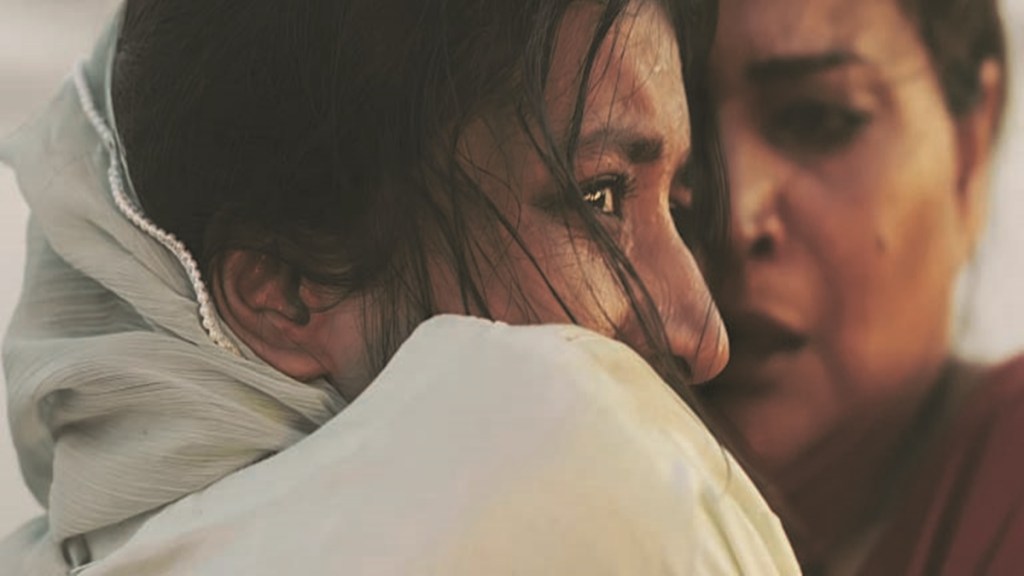Zarrar Kahn had just graduated from theatre school in Canada when he received life-altering advice from a fellow member of the south Asian community. Indian-origin filmmaker Richie Mehta, who directed the hugely-acclaimed television series, Delhi Crime, told him to return to his homeland if he wanted to do good artistic work. “One day, I met Richie Mehta, who is also from Mississauga in Canada where I lived,” says Kahn, who was born in Pakistan but grew up in the north American nation. It was the year 2014. “He said, go back, otherwise you will be stuck here telling immigrant narratives,” he adds. “I took his advice to heart.”
Nearly a decade later, Kahh, who returned to his roots in Karachi, has just made his first feature film, In Flames, which premiered in the Directors’ Fortnight parallel programme of the 76th Cannes film festival. The film, set in Karachi, is a narrative from within Pakistani society about a single parent and her daughter battling the deeply entrenched patriarchy for survival. “I feel comfortable calling it a genre film,” says Kahn. “It takes off from a love story, a psychological drama, to tell the story of the terror this woman and her mother face as they navigate society,” adds the 32-year-old director.
Also read: Naruto to Tokyo Ghoul: 5 Anime shows with life lessons seeped in
In Flames is about Mariam Rizvi, a 25-year-old medical student, and her mother, Fariha, a widow, facing the wrath of a male-dominated society. Kahn wrote the story in 2018 and rewrote it during the coronavirus pandemic. “During the pandemic, I felt all the women in my life were suddenly being very honest about their experiences because it felt like the world was ending and there was no harm being honest now,” he recalls. “It was so jarring to me to hear the realities that are parallel to the existing ones and feeling that there is such true horror here, but also resilience.”
Several incidents in the film are based on true stories. “I just pushed them a bit further into fiction into the genre tropes because I feel that allows the audience a way into the story,” explains the director. The film, which owes its origins to a short film, Dia, made by Kahn in 2018, was shot during February-March last year as Pakistan slided into an economic crisis. At the world premiere of their film in Cannes, Kahn, Ramesha Nawal who plays Mariam, and Bakhtawar Mazhar, who acts as Mariam’s mother, were present to talk about the making of the film.
“I am a mother myself and the story resonated with me at many levels,” says Mazhar. “We have so many stories which need to be told,” she adds. Most of the actors come from the theatre community in Karachi, a closely-knit unit that Kahn, a theatre school graduate, belongs to. He grew up watching Bollywood movies and Hollywood dramas. “Every Sunday, we would sit and watch Karan Johar movies,” says Kahn, whose outlook of cinema changed when he started working as an intern at an independent art house in Canada. “Suddenly, there was a world of cinema that I hadn’t explored. There was Satyajit Ray, Asghar Farhadi… all these filmmakers were telling stories that I cared about, the problems that I cared about.”
During pre-production, In Flames got the backing of award-winning Indian-Canadian producer Shant Joshi’s Fae Pictures. Born in Toronto to Gujarati immigrant parents, Joshi, who now lives in Los Angeles, launched his independent film production house in 2017 to “decolonise Hollywood”. “Driven by a purpose to dismantle colonial oppression, the (film) project became undeniable for me to support as an Indian person in the wake of draconian measures like the Citizenship Amendment Act and National Register of Citizens,” says Joshi.
“We met Shant at the Berlin film festival in 2020 when we were pitching the film at the Berlinale Talents,” says Anam Abbas, the producer of In Flames. “When I left Canada to live in Pakistan, there was no room for diverse voices in Canada. So much has changed over a decade and Shant has been instrumental in leading that change,” says Abbas.
Faizal Khan is a freelancer

